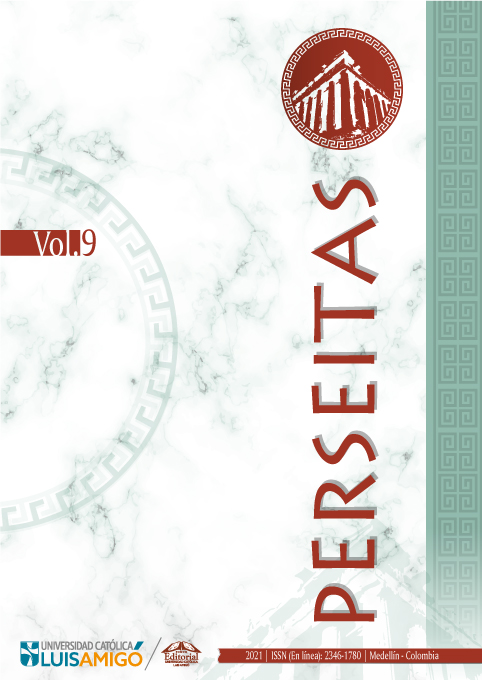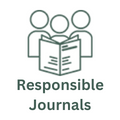Shamanic listening to the earth as healing of the soul
DOI:
https://doi.org/10.21501/23461780.4115Keywords:
Listening, Mother Earth, Ancestry Listening, Ancestry, Healing, Care, Ancestral Psychology, SpiritualityAbstract
Before a science badly treated from within, an eye alienated and confused in its vision, a human being tired and distrustful of the same explanation, a world in need of understanding and care, before a few insistent to live in fragmented times and spaces, appears the need to listen again to one’s own, to the first and founding as a force of transformation. Thus, the following lyrics recognize a phenomenological and contemplative path in the Great Mother, the Hytcha Guaia, the Pachamama, the first great womb, sacred womb that feeds and nourishes the human in all its manifestation.
For psychology, knowledge of the psyche, of the soul, its task is also to look at itself, to recover and through a transcendent, integrative logos, to return to the sensitive and heartfelt listening of the divine as healing, hence its affirmation to the magical, shamanic, powerful and sacred of the telluric knowledge (of the earth), to the medicine that dwells in it and its healing. The proposal is the great path of walking the earth, of feeling, listening and being in root consciousness, a path of care that confirms in each ritual and experience the spiritual force of our indigenous ancestral knowledge as the first and perennial science.
Downloads
References
Antón, D. J. (1997). Amerrique: Los huérfanos del paraíso. Piriguazú Ediciones.
Boff, L. (2006). Ecología: grito de la Tierra, grito de los pobres. Editorial Trotta.
Comunidad Tiguaia. (23 de Julio de 2018). Huytaqa Psy Majui, la psicología ancestral indígena. [Video]. Youtube.
https://www.youtube.com/ watch?v=bbcImHaYRvk&t=2102s
De Sousa, B. (2010). Descolonizar el saber, Reinventar el poder. Ediciones Trilce.
Dussel, E. (1994). 1942. El encubrimiento del otro: hacia el origen del “mito de la Modernidad”. Plural Editores; Facultad de Humanidades y
Ciencias de la Educación. http://biblioteca.clacso.edu.ar/clacso/otros/20111218114130/1942.pdf
Guzmán, A. (2004). El chamán, el jaguar, la selva. En A. J. James, & D. A. Jiménez (Eds.), Chamanismo: el otro hombre, la otra selva, el otro mundo (pp. 69-82). Instituto Colombiano de Antropología e Historia.
Escobar, A. (17 de enero de 2016). Desde abajo, por la izquierda y con la Tierra. El País.
https://elpais.com/elpais/2016/01/17/contrapuntos/1453037037_145303.html
Fundación caminos de identidad. (2015). Comunidades indígenas tejedoras de vida. Editorial Kimpres S.A.S
Gadamer, G. (1993). Mito y Razón. Paidós Ibérica S.A.
Huxley, A. (1999). Sobre la divinidad. Kairós.
Jung, C. (1957). Realidad del alma. Editorial Losada.
Jung, C. (1995). El hombre y sus símbolos. Paidós.
Lenkersdorf, C. (2008). Aprender a escuchar. Enseñanzas mayas-tojolabales. Plaza y Valdés.
León, L. & Pérez, P. (2020). Huytaqa Psy Majui [manuscrito no publicado]. Universidad Cooperativa de Colombia.
León, L. E. (2016). El Camino de Bochica, la ruta del sol. Una cosmogonía de la psique. Preludios filosóficos para una psicología ancestral indígena. Ediciones Cátedra Libre.
Lowen, A. (1993). Bioenergética. Editorial Diana.
Pérez, P. (2016). La fuerza del espíritu (fe) en el camino (ancestral) indígena. Revista Perseitas, 4(1), pp. 62-78.
Real Academia Española. (s.f.). Escuchar. En Diccionario de la lengua española. https://dle.rae.es/escuchar
Wilber, K. (1998). Ciencia y religión, el matrimonio entre el alma y los sentidos. Editorial Paidós.
Published
How to Cite
Issue
Section
License

This work is licensed under a Creative Commons Attribution-NonCommercial-NoDerivatives 4.0 International License.
La revista y los textos individuales que en esta se divulgan están protegidos por las leyes de copyright y por los términos y condiciones de la Licencia Creative Commons Atribución-No Comercial-Sin Derivar 4.0 Internacional.
















